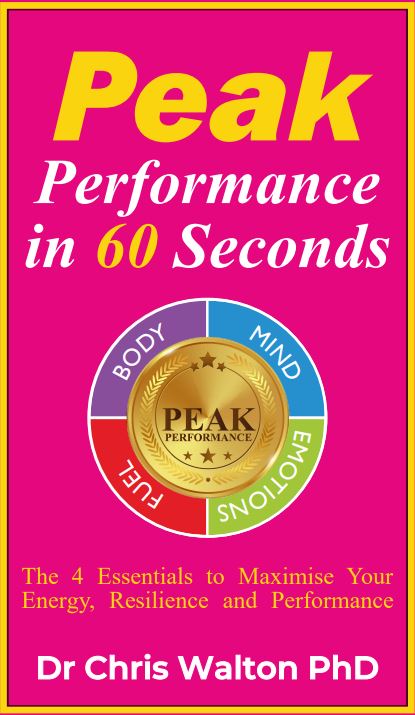Stress Causes Adrenal Fatigue
No bigger than a walnut and weighing less than a grape, each of your two adrenal glands sits like a tiny pyramid on top of a kidney. Don’t let their size fool you, these powerful little glands manufacture and secrete hormones that are essential for life, health and vitality.
They modulate the functioning of every tissue, organ and gland in your body to maintain balance during stress and keep you alive. They also have important effects on the way you think and feel. The main purpose of your adrenals is to enable your body to deal with stress from every possible source, ranging from injury and disease to work and relationship problems.
They largely determine the energy of your body’s responses to every change in your internal and external environment. Whether they signal attack, retreat or surrender, every cell responds accordingly, and you feel the results. It is through the actions of the adrenal hormones that your body is able to mobilise its resources to escape or fight off danger (stress) and survive.
In a more primitive society that would mean being able to run away quickly, fight or pursue an enemy or game, endure long periods of physical challenge and deprivation, and store up physical reserves when they are available. In modern society, these same responses are triggered by such circumstances as work deadlines, air pollution, family quarrels, financial problems, too little sleep, illness and overindulgence in or sensitivities to food, alcohol or drugs.
If your adrenal function is low, as it is in adrenal fatigue, your body has difficulty responding and adapting properly to these stresses. This can lead to a variety of physical and psychological health problems that are themselves a further source of stress. Unfortunately adrenal fatigue is very common in today’s fast paced world.
How do you know if your Adrenal Glands are Overworked or Fatigued?
• Tired for no reason?
• Feel apathetic or lethargic frequently?
• Having trouble getting up in the morning?
• Need coffee, stimulants, salty or sweet snacks to keep going?
• Feeling run down, worn out or stressed?
• Not recovering from colds and illness as quickly as you used to?
• Feeling anxious or depressed?
• Having difficulty with your memory or concentration?
• Putting on fat especially around the belly?
• Low libido?
If you answered “yes” to two or more of these questions, you may be experiencing adrenal fatigue.
I have coached many city executives who have driven their body into a state of chronic fatigue by ‘burning out’ their adrenals. Long working hours, poor nutrition and not resting and renewing energy sufficiently is a sure fire way to create adrenal fatigue.
Keeping your adrenals healthy is an absolute necessity to every aspect of your overall well-being and vitality. It is impossible to increase your energy and resilience when you have fatigued adrenals.
Here are 10 ways to give your Adrenals a Boost:
1. Take a high quality adrenal support supplement. There are many of these on the market available in health stores. I personally use and highly recommend Dr Wilsons Adrenal Rebuilder and Adrenal C Formula.
2.Don’t eat fast food or food with artificial sweeteners and additives in it. Usually loaded with neurotoxins (neurotoxins distort brain function) like monosodium glutamate (MSG) and aspartame. Fast food can cause your body to be in a constant state of stress after eating it, until the chemicals are detoxified from your system. Depending on the strength of your liver’s detoxification systems that can be anywhere from a few hours to several days.
3. Reduce your caffeine intake. Caffeine stimulates the adrenal glands only to cause an energy crash later on. Try herbal teas instead. Peppermint tea is a natural pick-me-up that doesn’t stimulate the adrenal glands.
4. Avoid sugar and refined wheat products. They cause your blood sugar to fluctuate rapidly, which in turn causes your adrenals to overreact.
5. Eat some protein at every meal to stabilise blood sugar and prevent strain on the adrenals. That doesn’t necessarily mean meat. Some good vegetarian sources of protein include: legumes (beans), nuts, seeds, avocado, and quinoa (a nutritious whole grain).
6. Reduce your stress. Use the Emotional Balance Technique daily to eliminate psychological and emotional stressors from your mind and body. Use the Optimal Brain Technique Meditation daily.
7. Eat plentiful amounts of fresh vegetables and some fruits. Chronic stress depletes nutrients. By eating a diet that is rich in nutrients from fresh produce you will give your body the vitamins, minerals and nutrients that help it recover. Supplement your diet with chlorella. This whole food supplement is a powerful detoxifier and helps boost your immunity, energy, and focus, improves digestion, relieves constipation, and may also help fight obesity, high blood pressure and cholesterol.
8. Get at least 7 hours sleep at night. If possible, don’t wake to a blaring alarm clock since the noise causes a flood of stress hormones to be released.
9. Avoid alcohol for a while. Alcohol is another stimulant and puts stress on the liver which in turns stresses the adrenals and makes them even more fatigued.
10.Find some time every day to have a good laugh. Laughter releases all the feel good, healing chemicals. Remember your body is designed to heal. When you remove the stress that is exactly what it does.
To find out more about adrenal fatigue and how to avoid or recover from it, I highly recommend the easy to read and definitive guide on the subject; Adrenal Fatigue: The 21st Century Stress Syndrome by Dr James Wilson, available on Amazon.



